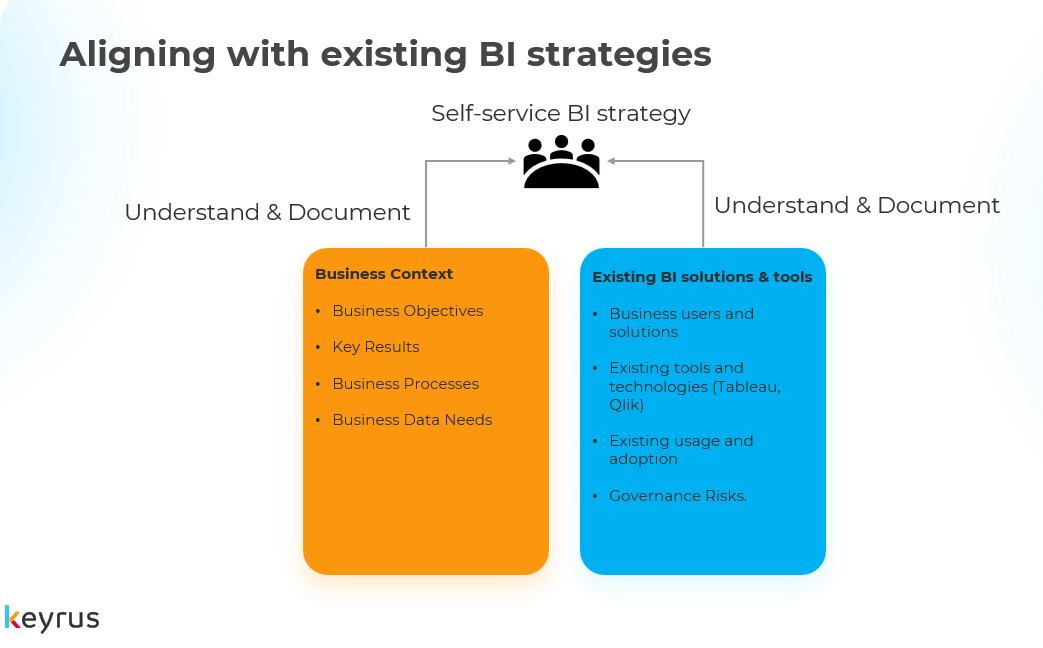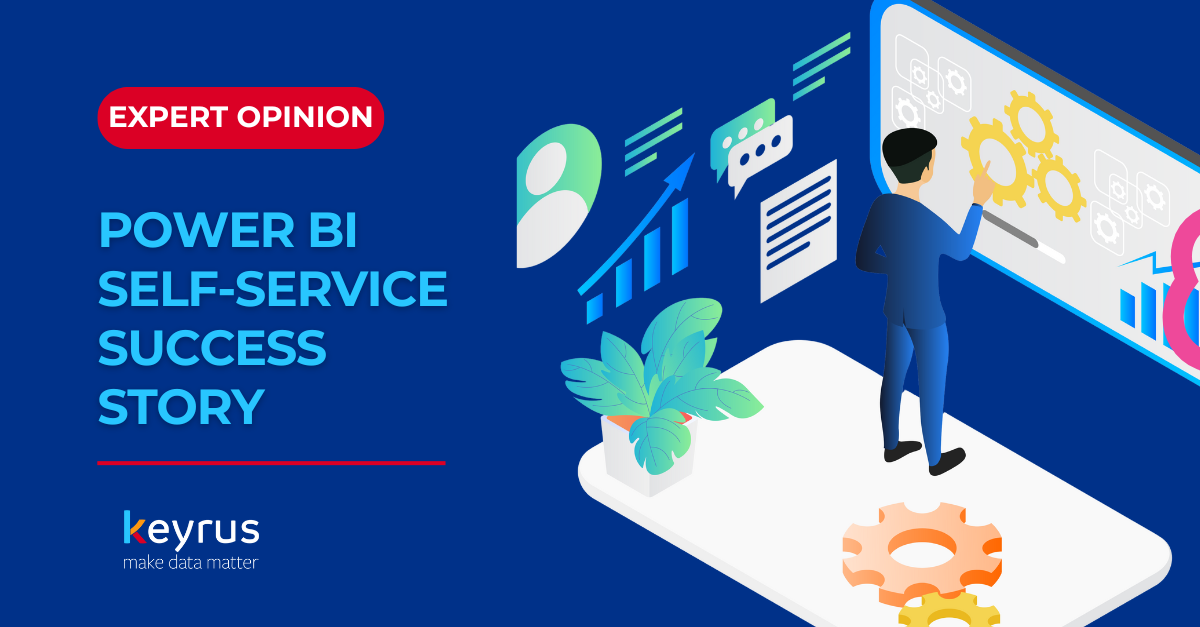In a world where data complexity grows exponentially, one leading Financial Services powerhouse partnered with Keyrus to transform its fragmented analytics landscape into a streamlined, Power BI self-service ecosystem that delivers real business value.
The Analytics Consolidation Challenge
In the complex world of business intelligence, organisations are overwhelmed by a sea of analytics tools, making it increasingly difficult to manage large amounts of data. Recent industry forecasts predict that by 2026, most enterprises will face significant business disruptions due to ineffective management of their data and analytics platforms.
For one of the world's leading Financial Services companies, this challenge had become particularly acute. Their analytics ecosystem had evolved organically over time, creating a fragmented landscape of tools, processes, and data silos that hindered their ability to extract meaningful insights efficiently. Keyrus Principal Consultant, Joe Serpis, explains more in this latest insight...
Q: What were the main pain points facing the client?
Joe: There was no unified BI strategy. There was a central BI function that took in insight requirements from the business and created reports. However, around the edges, different teams provisioned their own BI tools to answer their questions. This lack of a centralised self-service mechanism meant inefficient spending, not only on competing tools but also on training their people. However, in my opinion, the biggest issue with the status quo was not having robust controls in place, given the siloed nature of BI across the firm.
Q: What exactly is "self-service BI" here, and how did Keyrus help the client to implement it?
Joe: Self-service is a mechanism that enables all business users to securely access data, either from their own domain or the approved data products in the marketplace, to build their reports. Our client had around 6,000 users, and we wanted to avoid a bloated administration function; therefore, we needed the controls and administration to be scalable. We automated the creation of security groups for managing access, role access, workspace creation, purging content, and activity logging.
Keyrus was able to support both the technical and business aspects of this transition. A key challenge was that once a BI tool is in place and teams begin deriving value from it, getting them to align with a broader data strategy requires not only technical expertise, but also a deep understanding of business transformation—an area where Keyrus excels.

Q: What's the single biggest overall positive result of this approach?
Joe: The direct saving of hundreds of thousands of pounds in licensing costs. Consolidating BI spend under one tool allowed us to sunset competing tools. However, over time, I think a bigger result is simply how many more people are actively using trusted data from the Data Marketplace in their daily work. By providing a clear, easy path via self-service BI, backed by automated controls, decisions across the firm are becoming faster and more informed.
Conclusion
As organisations continue to grapple with growing data volumes and analytics demands, this leading Financial Services company’s successful implementation of Power BI self-service demonstrates a clear path forward. By breaking down data silos, establishing robust governance, and empowering business users, they've transformed their analytics capabilities from a fragmented landscape into a strategic business asset.
For modern enterprises seeking to turn their data into meaningful insights, this approach to analytics consolidation offers a proven model for success in today's complex digital landscape.
This Power BI self-service implementation is still in progress, with a pilot launch currently underway and full deployment planned for the near future. We'll share more insights and results as the project progresses.
Looking to implement a self-service BI strategy in your organisation? Contact Keyrus to learn how our experts can help you navigate the technical and cultural challenges of business intelligence transformation.
